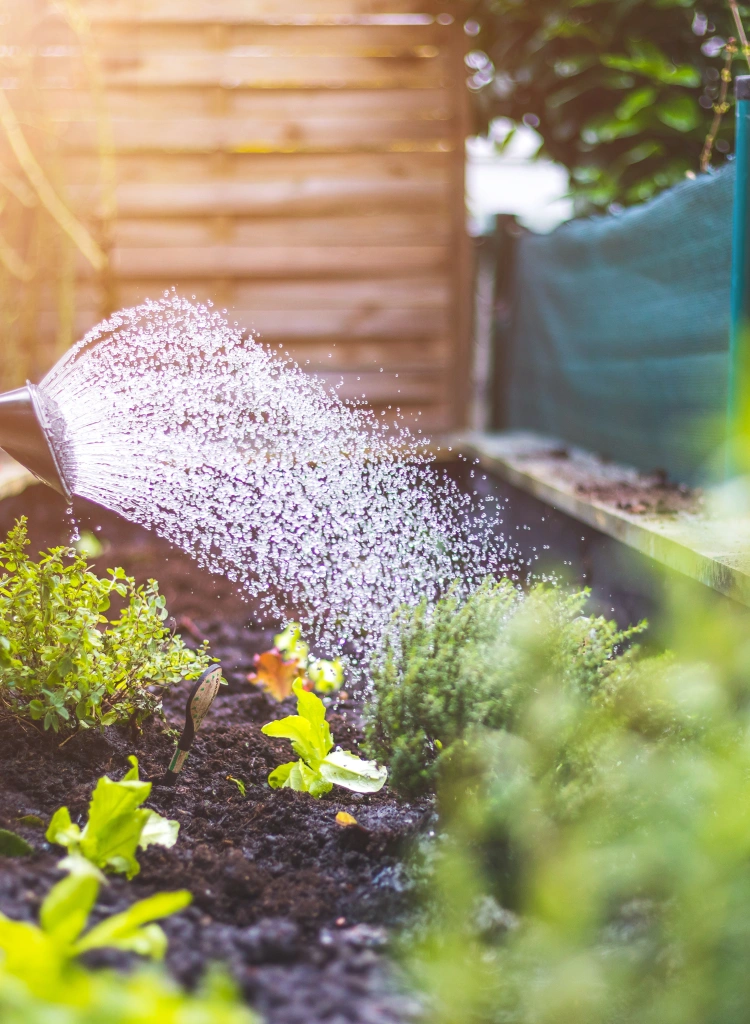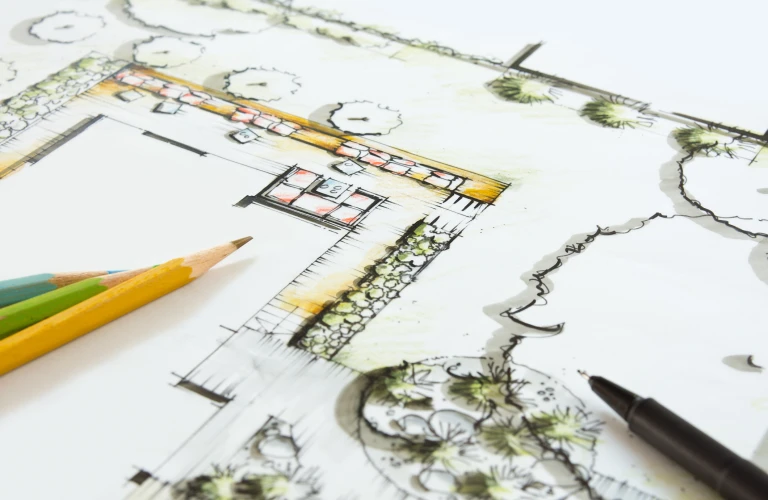
Sustainable Watering Practices for Scotland’s Gardens
Water is one of the most valuable resources for any garden, but with changing weather patterns and increasing demand, adopting sustainable irrigation methods is crucial. Whether you’re looking to reduce your water usage or make your garden more resilient during dry spells, there are plenty of eco-friendly garden watering techniques to explore. Here’s how you can implement water conservation for gardens across Scotland while maintaining a lush, thriving landscape.
1. Understanding the Importance of Water Conservation
Scotland may be known for its frequent rainfall, but periods of dry weather can still impact gardens. Conserving water not only reduces demand on mains water supplies but also lowers utility costs and helps create a more sustainable garden ecosystem. By making small changes to how water is sourced and used, gardeners can significantly improve their environmental impact.
2. Collecting & Storing Rainwater
Rainwater harvesting in Scotland is an effective way to reduce reliance on tap water. By installing a collection system, gardeners can store water during wet months and use it when needed. Consider the following options:
- Water Butts: These are easy to install and connect to downpipes from roofs, greenhouses, and sheds. Choose a large capacity (200-300 litres) to make the most of rainfall.
- Underground Rainwater Tanks: For larger gardens, an underground system can store thousands of litres, providing a long-term water source.
- Rain Chains and Barrels: These decorative features guide rainwater into barrels, adding both functionality and aesthetic appeal.
3. Smart Watering Techniques
Sustainable irrigation methods focus on delivering water efficiently and reducing waste. Here are some of the best approaches:
- Drip Irrigation: This system delivers water directly to plant roots, minimising evaporation and runoff. It’s ideal for flower beds, vegetable patches, and potted plants.
- Soaker Hoses: These porous hoses release water slowly into the soil, ensuring deep hydration without oversaturating the surface.
- Mulching: A layer of organic mulch (such as bark, straw, or compost) helps retain moisture, reduce evaporation, and suppress weeds.
- Watering at the Right Time: Early morning or late evening watering prevents water loss due to evaporation and ensures plants absorb moisture effectively.
4. Choosing Drought-Resistant Plants
Drought-resistant gardening involves selecting plants that thrive in dry conditions, reducing the need for frequent watering. Consider these hardy options for Scottish gardens:
- Lavender (Lavandula angustifolia): A fragrant, low-maintenance plant that tolerates dry soil.
- Sedum (Stonecrop): Ideal for rock gardens and borders, sedum requires minimal water.
- Thyme (Thymus spp.): A resilient herb that withstands dry spells.
- Echinacea (Coneflower): Provides beautiful blooms with low water requirements.
- Ornamental Grasses: Varieties such as Festuca and Stipa add texture while needing little water.
5. Improving Soil Health for Better Water Retention
Healthy soil holds moisture more effectively, reducing the frequency of watering. To improve soil structure:
- Add Organic Matter: Compost and well-rotted manure enhance soil’s water-holding capacity.
- Aerate Compacted Soil: Regular aeration prevents water from pooling on the surface and promotes deeper root growth.
- Use Water-Retaining Gels: In container plants, these gels help retain moisture for longer periods.
6. Lawn Care for Water Efficiency
Lawns can be one of the biggest water consumers in a garden. Rainwater harvesting Scotland is one way, and here are some others to make lawn care more sustainable:
- Raise Mower Blades: Keeping grass slightly longer (about 4cm) reduces evaporation and encourages deeper roots.
- Water Deeply but Infrequently: This method encourages stronger root growth compared to shallow, frequent watering.
- Consider Lawn Alternatives: Moss, clover, or wildflower meadows require less water and provide a natural aesthetic.
7. Sustainable Watering for Pots and Containers
Potted plants dry out faster than those in the ground, so they require special attention. Use these tips for sustainable solutions:
- Use Self-Watering Pots: These have built-in reservoirs that supply water gradually.
- Group Pots Together: Placing containers close together creates a microclimate that reduces evaporation.
- Line Pots with Mulch or Pebbles: This helps retain moisture and slows down drying.
8. Reducing Runoff & Maximising Absorption
Efficient garden design can prevent water wastage and enhance absorption. We have prepared these tips to assist you:
- Install Permeable Pathways: Gravel, bark, or permeable paving allows rainwater to soak into the ground instead of running off.
- Create Swales and Rain Gardens: These landscaping features collect and absorb excess rainwater.
- Use Raised Beds with Retaining Walls: These structures slow down water runoff and direct moisture where it’s needed.
9. Greywater Recycling for Gardens
Reusing household water is another way to practice eco-friendly garden watering. Tips like using leftover water can go a long way:
- Use Leftover Water from Washing Vegetables: Collect and repurpose it for watering plants.
- Install a Greywater System: This diverts lightly used water from sinks or washing machines to outdoor irrigation (ensure eco-friendly soaps are used).
- Avoid Using Harsh Chemicals: When reusing household water, ensure it is free from harmful detergents or bleach.
10. Encouraging Community-Wide Water Conservation
Water conservation for gardens can be expanded beyond individual efforts. Consider the following actions to assist your community:
- Joining a Community Garden: Many urban gardens in Scotland implement collective rainwater harvesting and sustainable practices.
- Educating Neighbours: Share tips and techniques to encourage local conservation.
- Participating in Local Initiatives: Councils and environmental groups often run water conservation projects.
Sustainable Gardening Help From North Hill Gardens
By adopting these sustainable watering practices, Scottish gardeners can significantly reduce water waste while maintaining beautiful and thriving outdoor spaces. Whether it’s through rainwater harvesting, drought-resistant planting, or efficient irrigation systems, every small change contributes to a greener, more water-conscious future. North Hill Gardens is committed to promoting sustainable gardening solutions, helping you create an eco-friendly and water-efficient outdoor space tailored to Scotland’s climate.


